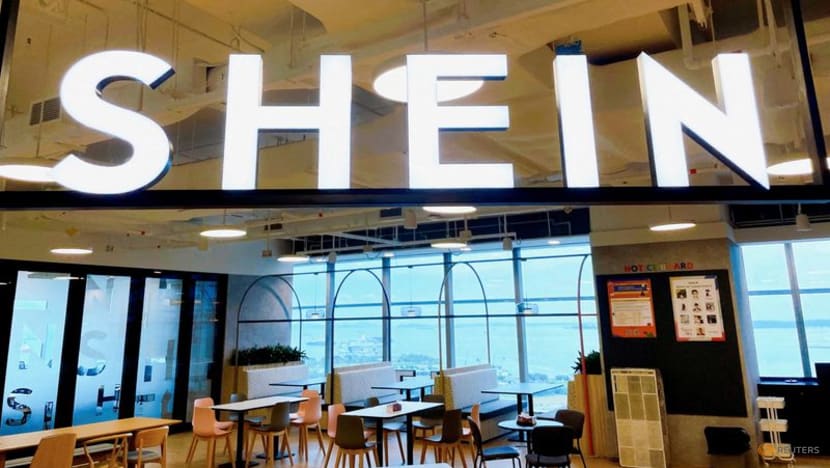Legoland trying to deter ride techs’ bid to unionize, workers say

Lego play sets have captivated children and adults alike for decades, but engineers at Legoland California are dealing with blocks of a different kind: opposition from management and hired union avoidance consultants trying to deter their bid to formally unionize.
Ride technician engineers at Legoland in Carlsbad, California, filed for a union election to join International Association of Machinists and Aerospace Workers (IAMAW), District Lodge 947 in September. They await a ruling by the National Labor Relations Board on accepting their bargaining unit, and permitting the election to be scheduled.
“The big focal point they have is a complete and utter lack of fairness,” said William Corona, business representative and organizer with IAMAW, District Lodge 947. “When we first got into the impact of what that meant with the workers, it got into extreme amounts of favoritism and nepotism. Some of these ride technicians are getting zero raises and it’s based on who you know and how well you are with the supervisors.”
The engineers “stood up and said ‘enough is enough’,” Corona added. “Signing a union authorization card and reaching out is already commendable and empowering alone.”
This action amounts to a “historic presence” at the resort, according to Corona. “Our future members there want fairness. They want to be recognized not just as a number, but as a person and Legoland is not doing that, and they haven’t been doing that.”
Legoland California – the first Legoland theme park in the US – is often rated as one of the most popular amusement parks in the world. Opened in 1999, the park was acquired by Merlin Entertainments in 2004. The family of Kirk Kristiansen, who controls Lego, later led a £5.9bn takeover of Merlin in 2019.
One worker at Legoland described lagging and low pay of workers in the ride engineering department, arbitrary and unfair disciplinary enforcement by supervisors, and a culture of favoritism fostered by managers and supervisors. This prompted workers to start organizing a union at the park, said the worker, who requested to remain anonymous for fear of retaliation.
“There is a lot of micromanaging, and our management doesn’t necessarily trust us to do our jobs,” they added. “We are the lowest-paid park engineers in California at the moment, I believe. Compared to Disneyland, SeaWorld, Six Flags, Magic Mountain, we’re one of the lowest, if not the lowest, in starting pay.”
They described how ride engineers perform preventative maintenance on rides, regular safety inspections and routine scheduled maintenance. The favoritism and micromanaging that workers complain about is often reflected in annual performance reviews, with supervisors arbitrarily deducting points toward that review for certain workers, or enforcing certain policies to add disciplinary points to a workers’ review. This impacts any bonuses they might receive and promotions or pay increases.
Since management became aware of the union campaign, the worker said there has been an uneasy tension between management and workers. Union avoidance consultants have been brought in, they said, and have used regular one-on-one and group meetings to isolate and separate workers who push back on anti-union arguments and claims.
“At the very beginning, they definitely made it seem like they were your friend trying to be on your side, like, ‘Oh, you know, we’re here to help you guys,’” the worker said, claiming that this attitude quickly veered into fearmongering about the union. “They would give us one of the sheets that they were going over at the very bottom of that, it was saying, ‘Do you want the union to have complete control over you?’ in black bold letters.
“They emphasize that there’s a big possibility the workplace might not get better, that Legoland could take things away, that our benefits will go down, without directly saying that.”
The opposition to unionization at Legoland is “trying to say the union has an agenda, and that they don’t”, the worker added. “But they do, and the union at the end of the day isn’t a separate body, it’s us. We’re not going to do something we don’t agree upon or don’t want.”
Legoland’s management retained the law firm Littler Mendelson, the same union avoidance law firm used by Starbucks and Amazon.
A complaint was filed recently by the non-profit LaborLab against one of the union avoidance consultant firms hired by Legoland – KV Information – for not providing adequate information in filings with the federal government about their compensation and consultant activities related to their work for Legoland in response to this union campaign.
These actions in opposition to the union appear to contradict the Lego Group’s Responsible Business Principles. “Workers have the right to form or join trade unions and take part in union activity, select their own representatives and to bargain collectively without interference, obstruction, influence or sanctions from employers,” it states.
Kirkbi, the private investment company of Kristiansen’s family, owns 75% of Lego Group and 47.5% of Merlin, which owns and operates Legoland parks.
“Legoland is a great place to work. The people that I work with are all great people, and I just feel like we deserve to be treated a lot better,” the worker said. “We play a very important role in the operation of the park and that role is really undermined.
“I don’t feel job qualification is that important to how we’re being treated. Everyone does their job very well, but I just believe our management really needs to reevaluate themselves, fix their issues and how they treat the workers.”
Legoland did not respond to multiple requests for comment.






 HSEThe lift began moving at normal speed after switching out of inspection mode, the HSE said
HSEThe lift began moving at normal speed after switching out of inspection mode, the HSE said







